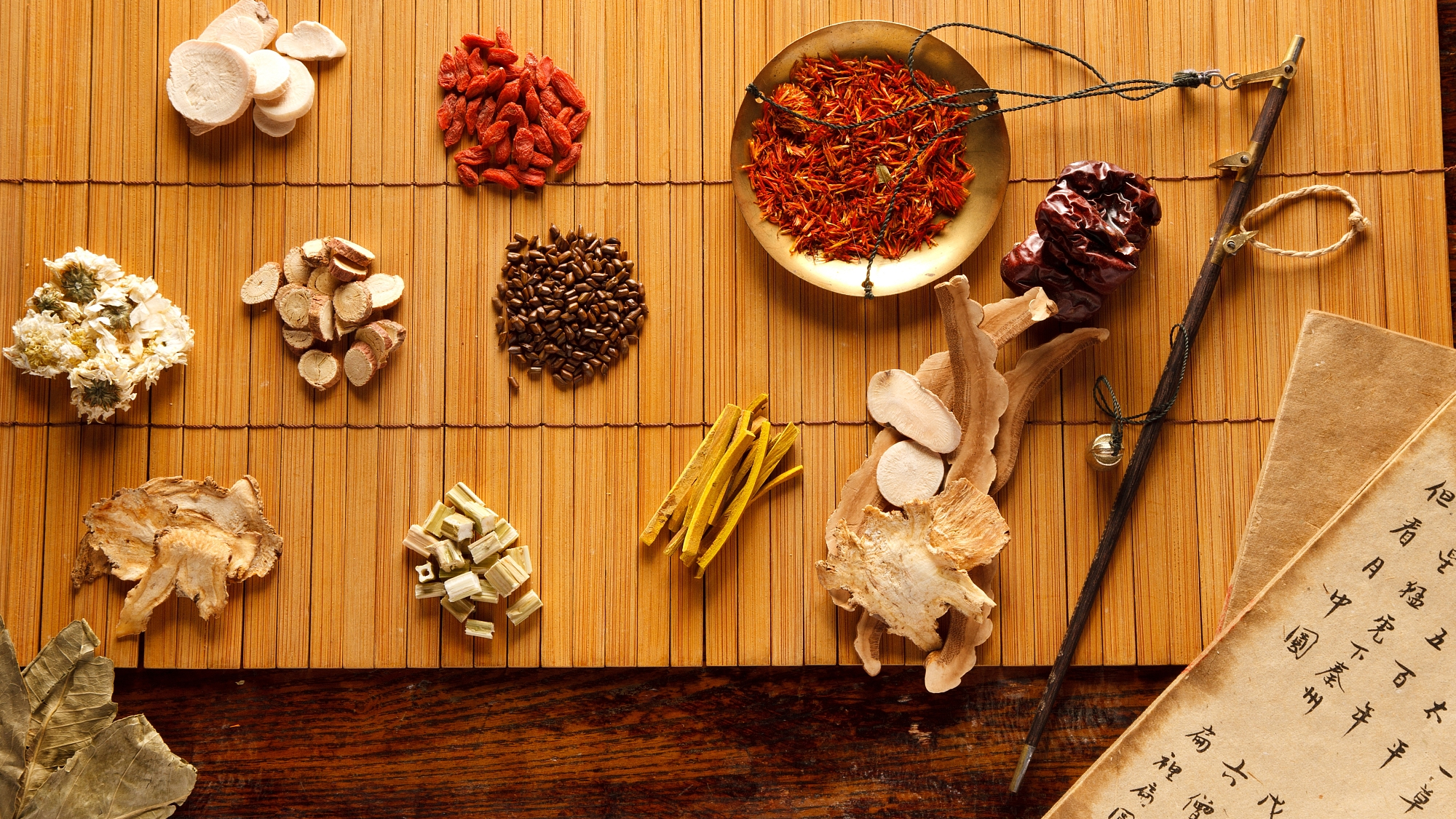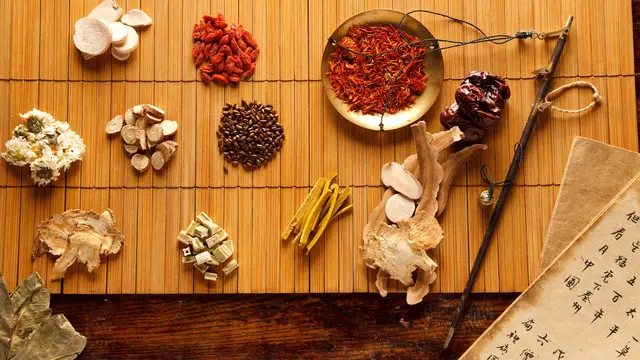
Traditional Chinese medicine (TCM) has been widely used in treating COVID-19 pneumonia in China. /VCG
Traditional Chinese medicine (TCM) has been widely used in treating COVID-19 pneumonia in China. Tong Ren Tang, one of the top TCM giants that has been long been rooted in the Chinese market, also played an important part in the global fight against the deadly disease.
The company is ambitious about its expansion plans in the overseas markets and is confident to make TCM popular worldwide.
In May 2019, TCM was added to WHO's International Statistical Classification of Diseases and Related Health Problems compendium, and a specific chapter on TCM was added to WHO's International Classification of Diseases rules and standards.
"TCM is of great importance in combating COVID-19," said Ding Yongling, deputy general manager of the Tong Ren Tang Group.
Tong Ren Tang is one of the oldest and most famous Chinese herbal medicine brands. It was founded in 1669, providing remedies to the imperial palace of the Qing Dynasty for nearly 200 years.
During the global fight against COVID-19, Beijing Tong Ren Tang donated 4,000 doses of TCM to Singapore and Toronto. A total of 20,000 doses of its cold granules were delivered to Seoul.
"Tong Ren Tang has issued preventive medicines for 35 countries with more than 70 different herbal prescriptions. Each of them takes full account of local conditions, people's living and eating habits," Ding elaborated.
As of now, Tong Ren Tang has selected 80 medicines and nine healthcare products to be sent to the Beijing Administration of Traditional Chinese Medicine for its approval for adding those to the list of proposed COVID-19 treatments.
Tong Ren Tang's four-step strategy to go global
The pharmaceutical maker Tong Ren Tang operates a closed-loop business entity covering the whole industrial chain, including production, wholesale, retail, talent training and cultural communication.
"The business model is achieved through a four-step strategy: go out, go in, go down, and go up," Ding summarized.
"Go out" means exporting the products to other countries, and the company has already explored foreign markets through decades of hard work.
"Go in" means invest and set up pharmacies in various countries. "Let local consumers buy our products and choose our health services. So far we have nearly 150 Tong Ren Tang terminals in 28 countries and regions overseas, including pharmacies and clinics," Ding noted.
The third step is "go down," which is providing healthcare services to people overseas. Through a series of cultural promotion, like lectures, consulting services, and free medicines, allowing the people living abroad have a deeper understanding of TCM.
The final step is "go up." "Our ultimate goal is to provide TCM products and healthcare services to the high-level members of various countries, in order to make Chinese medicine enter the mainstream medical insurance system abroad," Ding said.
Foreigner-friendly TCM products
At present, Tong Ren Tang's overseas sales only make up around eight percent of its total sales, Ding attributed the bottlenecks and obstacles of exploring overseas markets into several parts, including cultural identity, technical and trade barriers, unfair competition and malicious reports.
"Some foreigners think TCM is only suitable for China, they always question 'what kind of scientific data do you have to prove you're better than Western medicine?'" said Ding. "All the questions and criticisms are because people don't know much about our culture."
Ding gave an example: "Twenty years ago when we didn't have any English introduction on products, some patients swallowed the entire ball of medicine including sealing wax, then they were choked. So we modified the big pill into small ones, or concentrated pills. In this way, the patient can easily swallow them. We also introduced English packaging, including clear directions in various languages to avoid misuse.
Ding also mentioned that in order to cater to local markets' needs, the company developed some healthcare food and herbal tea to treat some common local illnesses and help people stay healthy, in that way more foreigners could learn more about the benefits of TCM and choose wisely.
(Cheng Lei contributed to the story.)
 简体中文
简体中文

